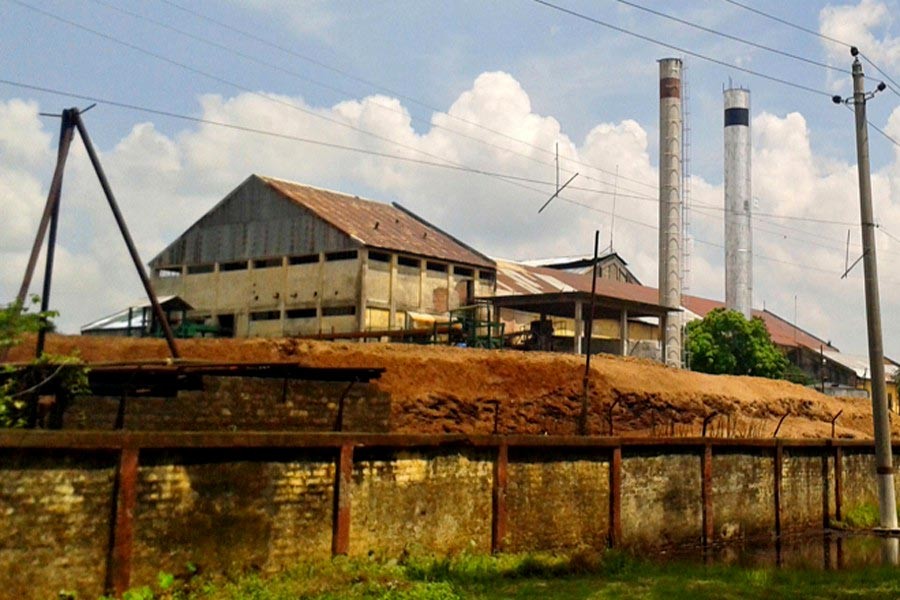
Published :
Updated :

The propensity to jump on the bandwagon is quite strong among the Bangladesh businesses. One or two success stories attract them to any business in big numbers. While doing so they hardly bother to examine the pros and cons of their new ventures. There are numerous instances where businesses have burnt their fingers because of their 'herd mentality' as far as investment in new ventures is concerned.
Investment in sugar refineries by a number of private entrepreneurs is the latest instance of rash business decisions.
Deshbandhu Sugar Mills was the first private sector unit that started refining sugar in 2002. The venture proved to be an instant success because of its lower cost of production. The cost of production in the highly inefficient and worn-out public sugar mills that were the main local supply sources was very high. Riding on initial success Deshbandhu started expanding its capacity and its production capacity has now reached 500,000 tonnes a year.
Lured by the success of Deshbandhu, four more leading investors entered the sugar refining business and pushed the capacity to 4.8 million tonnes a year, almost twice the country's annual requirement, within a short time. So, the refineries are now forced to keep nearly half of the capacity idle.
Export of refined sugar remains the only option before them to utilise the total installed capacity of their mills. The government has provided bond facility for them in the case of sugar export.
But despite having the bond facility, Bangladesh private sugar mills are finding it hard to export sugar since they are not competitive in the global market.
So, the scenario in the case of private sugar mills is messy. The situation with the state-owned sugar mills, on the other hand, is simply deplorable and, apparently, beyond any repair. Workers and employees of these mills are not getting their wages for several months. Some mills are disbursing sugar as wages among the workers. The mills are finding hard to dispose of their large stocks of sugar because of higher cost.
While making investment in an entity or programme, the government is usually guilty of not taking all the relevant issues into consideration. And the people who plan and execute these investment programmes are often found not to behave responsibly while spending or squandering taxpayers' money.
But the private sector people are supposed to be careful while making investment in new areas. The relevant businesses should have carried out their own feasibility studies on their sugar industry ventures. But, unfortunately, they did not carry out any such study.
The owners of these refineries are now facing the inevitable. It is not that they have put their own investment at stake. The banks that have financed those entities are facing troubles in recovering their funds. The accumulated loss of one sugar refinery now stands at Tk.7.7 billion and that of another refinery is around worth Tk. 6.0 billion. All the five private sugar refineries are counting losses and owe a huge amount to a number of banks.
A close scrutiny would reveal that most part of the money invested in these refineries belong to banks and other financial institutions. So, in the event of a bad situation, banks stand to lose more than the sponsors of these enterprises.
Under the circumstances, one obvious question that might agitate the minds of many is: why did not the relevant banks do necessary homework before putting in their money in these ventures?
In a country like Bangladesh, entrepreneurs would always paint a rosy picture in relation to projects they want to undertake. But the banks need to be careful about financing those.
There is no denying that consumers are buying sugar at an affordable price. But the units those producing or refining it have been counting losses because of their higher cost of production. However, the price of sugar at the retail level is still high, compared to international price. So, there is no way of hiking the sugar price on the plea of higher cost of production of the local production units.
Overall, the sugar industry is not in a good shape. It is hard to salvage the state-owned sugar mills. Liquidation of these mills is the best option before the government. The private sugar mills should explore ways to cut their cost of production with active support from the government. That would help meet local demand as well as grab a share of the international sugar market.


 For all latest news, follow The Financial Express Google News channel.
For all latest news, follow The Financial Express Google News channel.